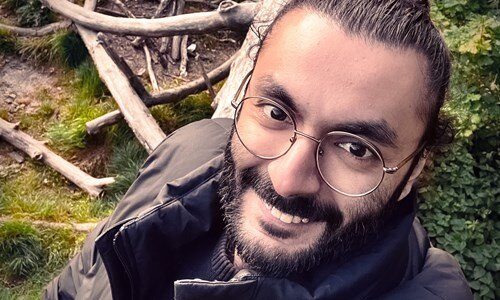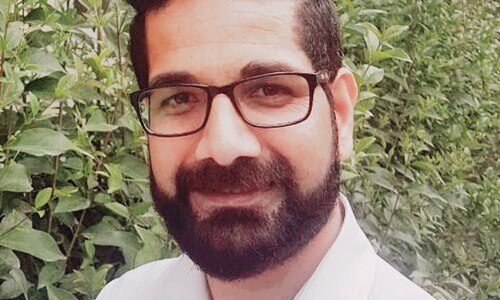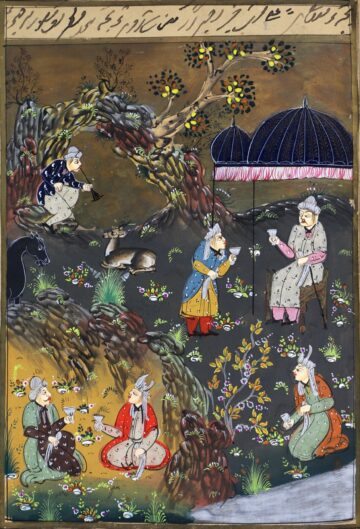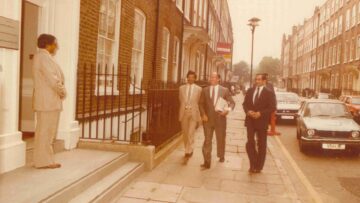Farhad Daftary Doctoral Scholarship Programme 2023
The Farhad Daftary Doctoral Scholarship Programme 2023 awarded the full scholarship to Farhan Feroz Ali (GPISH 2023) to obtain his doctoral studies at SOAS, University of London, UK.
The programme will also support Abid Ali (STEP 2017) with a partial scholarship to assist him in pursuing his doctoral studies at Graduate Theological Union (GTU), Berkeley California, USA.
Farhan Feroz Ali (GPISH 2023)
Farhan graduated as a designer in 2015 and worked five years in the field of architecture in Pakistan before joining GPISH. He is currently studying the history of art and architecture of the Islamic Middle East at SOAS. His interest lies in exploring embodied aesthetic and devotional practices in the South Asian region in tandem with spatial narratives that facilitate such constructions.

He says: “My aim is to make space for lived experience in the broader construction of knowledge, and the shrine of Shah Abdul Latif (1689-1752) in Sindh, Pakistan, is the focus of my research. Tarrying at the threshold of Bhittai’s tomb, amid circumfusing chants of the faqirs atop their lilting harmonies, bodies enrapture in their convergence with the divine. A place, one that amalgamates within itself the many constructions of knowing and being, one that allows for this experience of divine, and allows for an embodied practice as a register for accessing truths.
“In addition to the shrine itself, there exist three elements: the material context, that is the architectural heritage of shrines in and outside the region, and the local architectural customs; the artistic context, that is the poetic and literary cultures, including ideological constructs, that inform, and are informed by the place; and the human body, that which occupies and in turn is occupied by the shrine.
“My research thus is transdisciplinary — art and architectural, somatic, anthropological, literary, ethnomusicological, historical, theological and metaphysical. And to achieve this, I shall employ, first, Panofsky’s iconological method to access the mass of material and artistic productions, followed by Pink’s sensorial-ethnographic method to engage with the culture itself. It is expected of these methods to elicit attitudes both historical and contemporary, which then shall aid in conceptualising a holographic appreciation of Islam as it exists in the South Asian region.”
Abid Ali (2017)
Abid Ali is from Gilgit-Baltistan, Pakistan. He previously completed a Master of Arts in Education with a focus on Muslim Societies and Civilisations and a Master of Teaching from the Institute of Education, University College London. Abid also holds a B.A (Hons) in English Literature from Karakoram International University, Gilgit. From September 2017 to September 2023, he was affiliated with ITREB Pakistan as a secondary education teacher.

Abid commenced his PhD at GTU, Berkeley, California in Historical and Cultural Studies of Religion, with a concentration in Anthropology of Religion.
His doctoral research employs a conceptual framework of narrative inquiry grounded in a constructivist approach and seeks to investigate narratives of mainstream schools’ religious education teachers in relation to religious literacy and social cohesion in Gilgit, Pakistan, in order to re-examine the narrative of an apparently polarised society based on religious identities.






